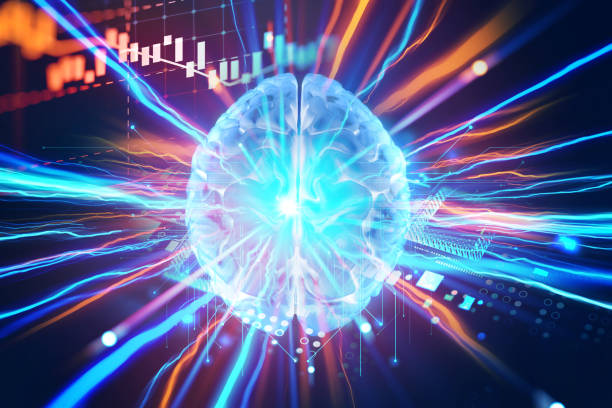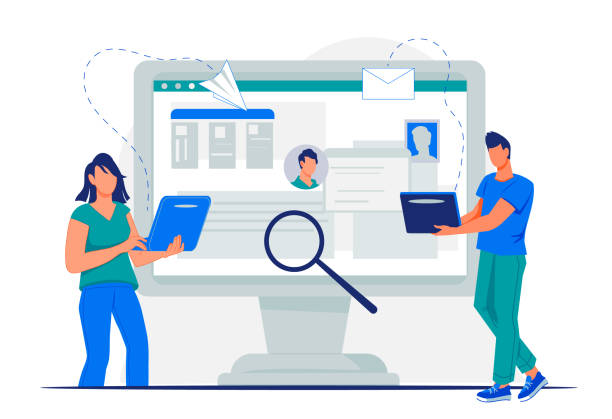What is Artificial Intelligence and Why Will It Transform Our Career Future?
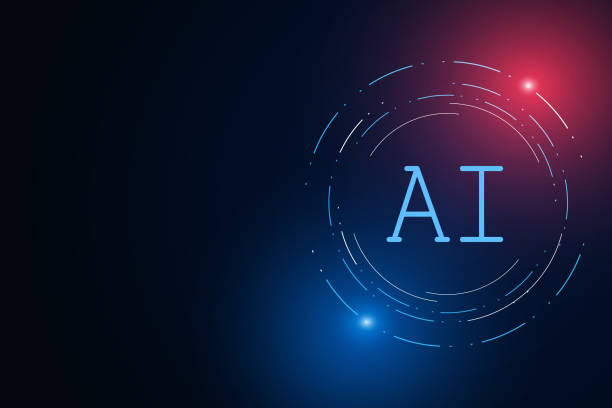
Artificial Intelligence (AI) is no longer a science-fiction concept; it has become an inseparable part of our daily lives and workplaces.
From voice assistants and online recommenders to complex medical diagnostic systems and self-driving cars, AI is redefining our interactions with technology and the surrounding world.
This technology refers to a set of algorithms and systems capable of performing tasks that typically require human intelligence, including learning, reasoning, problem-solving, perception, and language understanding.
Rapid advancements in machine learning, natural language processing, and computer vision have dramatically expanded AI’s capabilities.
These advancements, particularly in the fields of automation and process optimization, have had a profound impact on job structures and labor market needs.
While there are concerns about jobs being replaced by robots and automated systems, at the same time, it creates countless opportunities for new job creation and increased productivity.
These changes make a deep understanding of the future of AI careers essential for individuals and organizations to adapt to this transformative wave.
Jobs requiring repetition, analysis of large datasets, or predictable physical tasks are at the highest risk of automation, while roles focused on creativity, critical thinking, emotional intelligence, and human interaction will gain increasing value.
This article provides a comprehensive review of these developments and offers strategies for preparing for future labor market transformations.
Does your current website convert visitors into customers, or does it scare them away? Solve this problem permanently with professional corporate website design by Rasawob!
✅ Build powerful credibility and branding
✅ Attract target customers and increase sales
⚡ Get a free consultation now!
Jobs at Risk and Emerging Opportunities in the Age of Artificial Intelligence
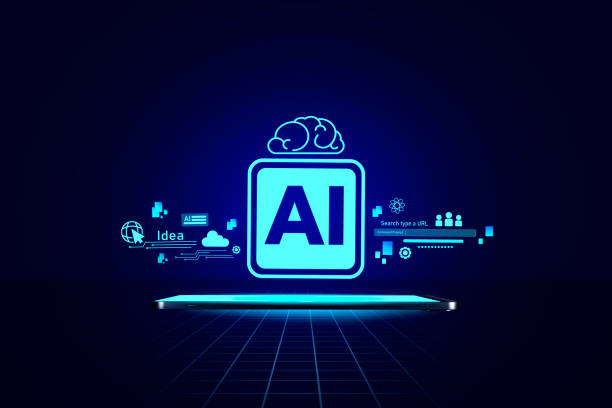
With the astonishing progress of artificial intelligence, the discussion about replaceable jobs and new career opportunities has become one of the hottest topics.
Many routine and repetitive jobs, including administrative tasks, production line work, data entry, and even parts of customer service, are highly susceptible to automation.
This does not mean these jobs will completely disappear, but rather their nature will change, requiring new skills.
For instance, in manufacturing, instead of manual laborers, there will be an increased need for robotics engineers and technicians for automated system maintenance.
In customer service, AI can act as an assistant, helping operators respond to inquiries faster and more accurately, while complex cases or those requiring human empathy will still be handled by humans.
However, alongside these transformations, AI has also brought a wave of new job opportunities.
Roles such as Machine Learning Engineer, Data Scientist, AI Specialist, AI User Experience Designer, AI Ethicist, and even AI Strategy Consultants are emerging and expanding.
These jobs are not only directly related to the development and implementation of AI technology but also require a combination of technical and soft skills.
The importance of problem-solving ability, critical thinking, creativity, and interpersonal skills is more evident than ever in this era.
For individuals, understanding these changes and investing in future-oriented skills is crucial to secure the future of AI careers.
Companies also need to invest in retraining and upskilling programs for their employees to fully leverage AI’s potential and prepare their workforce for future challenges.
Key Skills for Success in the AI Career Future
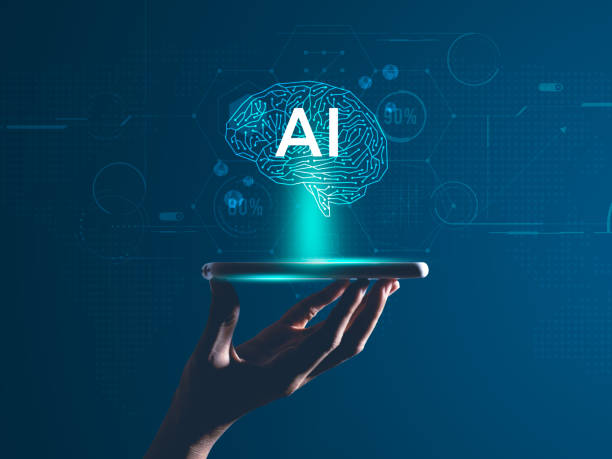
To succeed in a work world increasingly influenced by artificial intelligence, merely having a university degree is no longer sufficient.
New skills and adaptability have become key elements.
While some jobs may change, new ones are emerging that require a combination of technical and soft skills.
Technical skills include programming (especially Python and R), familiarity with machine learning and deep learning, big data analysis, understanding databases, and cloud computing.
Additionally, familiarity with AI tools and related platforms is crucial.
Alongside hard skills, soft skills are also of vital importance.
These skills include critical thinking and problem-solving, creativity, innovation, emotional intelligence, teamwork ability, effective communication, and flexibility.
AI can perform repetitive tasks, but human ability in innovation, empathy, negotiation, and strategic thinking is irreplaceable.
Continuous learning and skill updating through online courses, boot camps, and workshops are essential for anyone seeking to secure their AI career future.
Governments and organizations also play a significant role in creating educational and retraining opportunities for the workforce.
Below, a table of essential skills compared to traditional skills is presented:
| Skill Category | Traditional Skills (Less Needed) | AI Era Skills (Highly Needed) |
|---|---|---|
| **Technical and Specialized** | Manual data entry, routine calculations, physical document keeping | Programming and Coding (Python, R), Machine Learning Modeling, Big Data Analysis, Familiarity with Cloud AI Platforms |
| **Thinking and Problem-Solving** | Following specific instructions, solving standard problems with fixed solutions | Critical and Analytical Thinking, Solving Complex and Unstructured Problems, Creativity and Innovation |
| **Social and Emotional** | Routine and limited interactions, no need for deep empathy in some jobs | Emotional Intelligence and Empathy, Effective Interpersonal Communication, Leadership, Teamwork and Conflict Management |
| **Learning and Adaptability** | One-time skill learning at the start of a job, resistance to change | Lifelong and Rapid Learning, Flexibility, Ability to Reskill & Upskill |
| **Ethics and Accountability** | Focus on task completion without considering broader dimensions | Understanding AI Ethics, Social Responsibility, Ethical Decision-Making when facing New Technologies |
How to Prepare for the AI Era? Practical Guidance
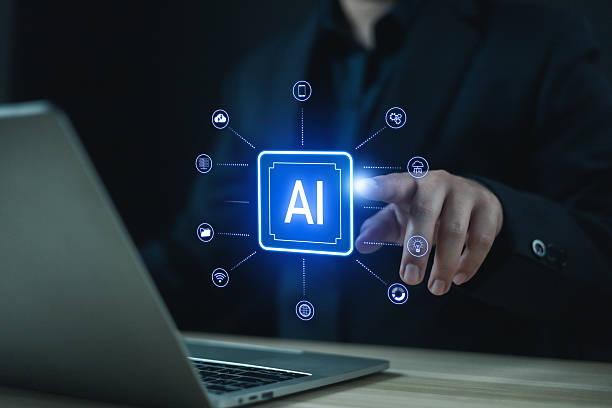
Preparing for labor market transformations driven by artificial intelligence requires a multifaceted and proactive approach.
The first step is to develop deep awareness and understanding of how AI works and its impact on your industry and job.
This means following technology news, participating in webinars, and studying specialized articles.
The next step is reskilling and upskilling.
For jobs that may be automated, focusing on learning new skills that AI cannot easily replicate is crucial.
This can include programming courses, data analysis, or even developing soft skills like design thinking and problem-solving.
Online learning platforms such as Coursera, edX, Udemy, and even free resources like YouTube channels and specialized blogs, are valuable tools for this purpose.
Also, developing human skills where AI is weak is very important.
This includes creativity, critical thinking, emotional intelligence, empathy, negotiation ability, and project management.
These skills will help you excel in roles that require complex human interactions, ethical decision-making, and innovation.
Building a strong professional network can also be effective in gaining information about new job opportunities and the challenges of the AI career future.
Attending conferences, industry events, and online specialized groups provides opportunities to connect with experts and future colleagues.
Remember that success in the age of AI depends not only on knowing the answers but also on the ability to ask the right questions and continuous learning.
Embracing a growth mindset and flexibility in the face of change is key to success in this transformative period.
Does your current corporate website not reflect your brand’s credibility and power as it should? Rasawob solves this challenge for you with professional corporate website design.
✅ Increase credibility and visitor trust
✅ Attract more targeted customers
⚡ Click for a free consultation!
Challenges and Opportunities of AI Career Future: A Critical Perspective
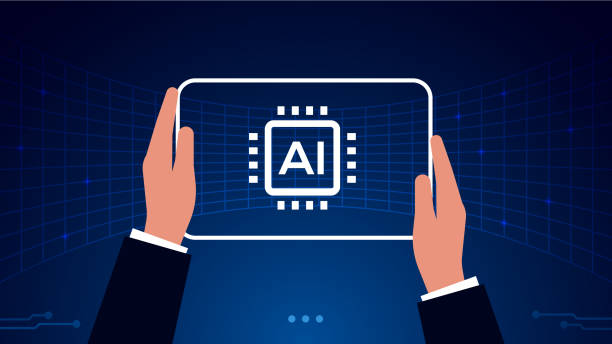
While artificial intelligence promises countless advancements, it’s impossible to ignore its challenges for the future of AI careers.
One of the biggest concerns is the increase in social inequality.
If access to education and skill retraining is not fairly distributed, the gap between individuals with new skills and those without will deepen.
This could lead to widespread unemployment in some sectors and a concentration of wealth and opportunity in the hands of a select few.
Another challenge is the need for new laws and regulations to govern AI.
Issues such as data privacy, algorithmic bias, and accountability for errors by AI systems require legal frameworks that are still not fully developed.
However, within these challenges, vast opportunities also lie.
AI can contribute to increased productivity, solving global problems like climate change and diseases, and creating innovative services and products.
In healthcare, AI can assist in early disease detection and new drug development.
In education, it can provide personalized learning experiences.
From a career perspective, opportunities exist for creating jobs that previously did not exist, including roles in the monitoring, development, and maintenance of AI systems, as well as roles in interpreting AI outputs and transforming them into actionable insights.
These changes require a critical perspective and comprehensive planning from governments, organizations, and individuals to not only tackle the challenges but also leverage the myriad opportunities that the future of AI careers brings, building a fairer and more sustainable work future.
Specialized AI Roles: From Engineer to Ethicist
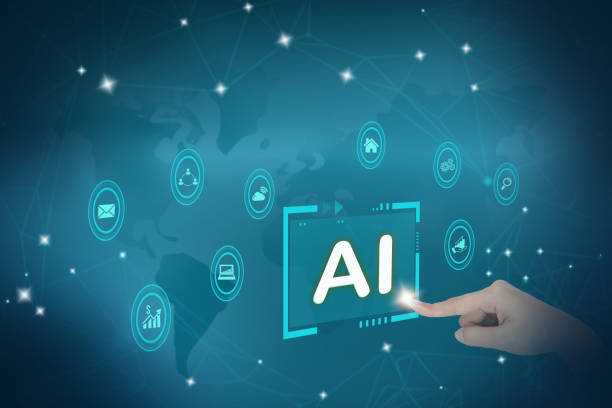
As artificial intelligence matures, it has transformed not only into a set of tools but into a dynamic industry with highly specialized job roles.
These roles cover a wide range of expertise, from developing core algorithms to ensuring their ethical application.
**Machine Learning Engineer:** These individuals are responsible for designing, building, training, and deploying machine learning models at scale.
They must be proficient in Python programming and frameworks like TensorFlow or PyTorch, and have a deep understanding of machine learning algorithms and model optimization.
**Data Scientist:** These professionals work with raw data to extract insights and build models that aid business decision-making.
Their skills include statistical analysis, programming, and the ability to communicate complex findings in simple terms.
**Data Engineer:** Responsible for designing, building, and managing the data infrastructure used by data scientists and machine learning engineers.
They ensure the reliability, efficiency, and security of data.
**Natural Language Processing (NLP) Specialist:** These individuals work on systems that allow computers to understand, interpret, and generate human language.
Their applications include chatbots, machine translation systems, and sentiment analysis.
**Computer Vision Engineer:** This group specializes in developing systems that can “see” and “understand” images and videos.
This includes applications in self-driving cars, facial recognition, and medical image analysis.
**AI Ethicist:** Given the increasing importance of responsible AI, this role focuses on ensuring that AI systems are developed and deployed in an ethical, fair, and transparent manner.
They address issues of bias, privacy, and social impacts.
**AI UX Designer:** These designers create user interfaces that make interaction with AI systems easy and intuitive for users.
These roles are just examples of specialized jobs in the future of AI careers and demonstrate the diversity of opportunities in this growing field.
Policymaking and Educational Programs for the AI Career Future
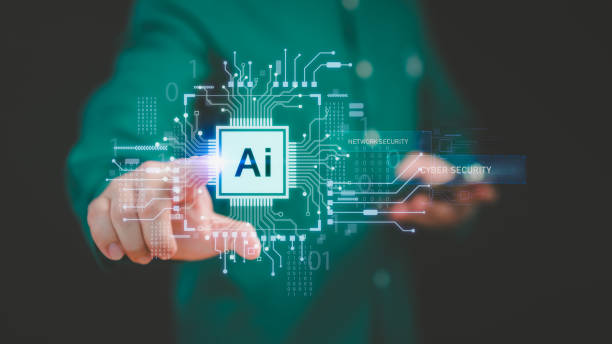
Facing the transformations of the AI career future is not limited to individual efforts alone.
Governments, educational institutions, and organizations play a pivotal role in shaping this future.
Developing supportive policies for innovation in AI, while simultaneously protecting workers’ rights, is of paramount importance.
These policies can include investing in AI research and development, providing financial incentives for companies to retrain employees, and establishing stronger social security programs to support individuals who may face challenges during career transitions.
In the education sector, a complete overhaul of curricula from primary school to university is evident.
Universities must rapidly update their syllabi to teach the necessary skills for the AI era, including programming skills, data analysis, and AI ethics.
Schools should also focus on fostering critical thinking, creativity, and problem-solving skills in students, rather than mere rote memorization.
Technical and Vocational Education and Training (TVET) programs must also play a prominent role in preparing the workforce for new job opportunities arising from AI.
These programs can offer short-term, intensive courses to upgrade technical and digital skills that directly address labor market needs.
Collaboration between industry and academia is also vital for designing relevant curricula and ensuring that graduates possess the required skills.
These comprehensive and coordinated approaches can help society benefit from the full potential of AI while minimizing employment-related challenges.
Below is a table of examples of jobs that may be affected and jobs that will emerge:
| Category | Examples of Jobs at Risk of Automation (Likelihood of Change or Decrease) | Examples of Emerging Jobs (Likelihood of Increase or Creation) |
|---|---|---|
| **Administrative and Office** | Data entry clerk, secretary, physical archivist | Business Process Automation (RPA) Specialist, Digital Transformation Consultant |
| **Manufacturing and Factory** | Manual assembly line worker, manual quality control inspector | Robotics Engineer, Automated Systems Maintenance Technician, Machine Vision Specialist |
| **Transportation** | Taxi/truck driver, forklift operator | Self-Driving Vehicle Engineer, Smart Logistics Specialist, Delivery Drone Operator |
| **Customer Service** | Call center operator for routine inquiries | AI UX Designer, Smart Support Specialist (AI monitoring), Customer Sentiment Analyst |
| **Finance and Accounting** | Invoice entry accountant, manual financial analyst | Fintech Analyst with AI Knowledge, Algorithmic Auditing Specialist, Risk Consultant using AI |
| **Medical and Health** | Radiology technician (initial interpretation), physician assistant for routine tasks | AI Specialist in Radiology (supervision), Bioinformatics Engineer with AI, AI Health Consultant |
| **Education** | Private tutor for basic and repetitive subjects | Adaptive AI Learning Content Designer, Future Skills Trainer, AI Educational Technology Specialist |
Human-AI Coexistence: Future Scenarios

Looking at the future of AI careers should not only be accompanied by concerns about job replacement but also include envisioning scenarios of human-machine coexistence where complementary capabilities reinforce each other.
This approach is called “Augmented Intelligence”, where AI acts as a powerful tool that helps humans perform better and make more informed decisions.
For example, in medicine, AI systems can analyze medical images with unparalleled speed and accuracy to identify abnormalities, but the final decision regarding diagnosis and treatment plans will still rest with the human physician, who leverages emotional intelligence, experience, and the ability to interact with the patient.
In creative sectors such as graphic design or music, AI can act as a collaborator, providing artists with new ideas or automating tedious processes, but the core creativity and deeper artistic aspects still belong to humans.
Another scenario is “collaborative automation”, where robots and humans work in a shared workspace, each undertaking tasks in which they excel.
This can lead to increased productivity, reduced human error, and the creation of safer work environments.
The future will likely see a combination of these scenarios, where some jobs become fully automated, others are significantly augmented by AI, and new jobs emerge.
The key to success in this era is adaptability, continuous learning, and embracing the reality that humans and AI are not just competitors but can be powerful partners on the path to progress.
This perspective shifts our outlook on the future of AI careers towards optimism and opportunity creation.
Does your corporate website not appear professional and trustworthy as it should? With specialized corporate website design by Rasawob, create an online presence that reflects your credibility and attracts more customers.
✅ Build a powerful and professional image for your brand
✅ Convert visitors into real customers
⚡ Get a free consultation now!
Entrepreneurship in the Age of AI: Creating New Opportunities
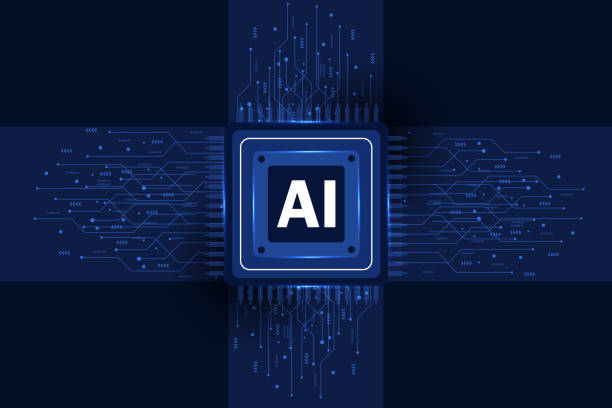
The age of artificial intelligence is not merely a threat to some jobs but also provides an unparalleled platform for entrepreneurship and the creation of new businesses.
Entrepreneurial opportunities in this field are vast and include developing innovative AI-driven solutions for existing problems, or creating entirely new products and services.
This can involve building custom AI software for specific industries, developing cloud AI platforms, offering consulting services for AI implementation, or even launching startups that focus on automated content generation or complex data analysis with the help of AI.
AI entrepreneurs can seek to identify pain points in the market that can be solved with AI solutions.
For example, a startup might focus on AI for supply chain optimization, personalizing customer experience in retail, or improving the accuracy of disease diagnosis.
Success in this domain requires a combination of strong technical knowledge in AI, a deep understanding of the market and customers, and entrepreneurial skills such as leadership, marketing, and fundraising.
Access to open-source AI tools and cloud platforms has reduced startup costs and facilitated entry into this field for entrepreneurs.
This trend contributes significantly to the growth of the AI career future in the private and startup sectors.
Additionally, opportunities for social entrepreneurship also exist within the AI domain, where technology is leveraged to address social challenges such as sustainable development, access to education, or poverty reduction.
Ultimately, the entrepreneurial spirit and the ability to identify and capitalize on emerging opportunities will be one of the most significant determinants of the path of the AI career future and the macroeconomy.
Final Outlook and Recommendations for the AI Career Future
![]()
The future of AI careers is not a fixed point, but a dynamic and transformative path.
It is clear that AI will change many aspects of our work, but this does not mean the end of work for humans.
Rather, this transformation requires redefining our roles and skills.
Overall, the future is moving towards human-machine collaboration, where AI handles repetitive and analytical tasks, and humans focus on tasks requiring creativity, empathy, strategic thinking, and complex problem-solving.
For individuals, continuous learning and flexibility are crucial.
This means investing in training in technical skills related to AI and also strengthening soft and human skills that AI cannot replace.
It is recommended that individuals view change as an opportunity for personal growth and development, rather than fearing it.
This includes developing digital literacy and AI literacy, the ability to work with data, and understanding the ethical principles related to new technologies.
For organizations and governments, investing in education and infrastructure, and formulating supportive policies for a just transition, are essential.
This includes large-scale retraining programs, providing social support for displaced individuals, and creating an environment that encourages innovation while maintaining social justice.
Remember that the future of AI careers is not only about what machines can do, but more about what humans can achieve with the help of machines.
This is an invitation to rethink work, learning, and our role in an ever-evolving world.
Frequently Asked Questions
| Question | Answer |
|---|---|
| What impact will AI have on the future job market? | AI will automate repetitive jobs, but at the same time, it will create new and more complex jobs in areas such as development, maintenance, and training of AI systems. |
| Which jobs are most at risk of being replaced by AI? | Jobs that involve repetitive, rule-based tasks with low need for creativity or emotional intelligence, such as some manufacturing jobs, data entry, and simple customer service, are most at risk. |
| What skills are essential for success in the future job market with AI? | Skills such as critical thinking, complex problem-solving, creativity, emotional intelligence, data literacy, the ability to work with AI, and lifelong learning are of great importance. |
| Will AI lead to widespread unemployment? | Some jobs will be eliminated, but history has shown that new technologies, instead of causing widespread unemployment, reshape the labor market and create new jobs. Adaptability and retraining are crucial. |
| What new job opportunities will emerge with the rise of AI? | Jobs such as Machine Learning Engineer, Data Scientist, AI Ethicist, Human-AI Interaction Designer, and Digital Transformation Consultant are among the new opportunities. |
| What is the role of education in preparing for the AI-driven career future? | Education must focus on developing soft skills, computational thinking, digital literacy, and the ability for continuous learning to prepare individuals for future changes. |
| How can I prepare myself for the job market changes brought by AI? | You can prepare by learning new skills related to AI and data, strengthening soft skills, developing critical thinking and creativity, and adopting a habit of lifelong learning. |
| Will AI ethics become an important career field? | Yes, given increasing concerns about biases, privacy, and autonomous decision-making by AI, the role of AI ethics specialists will become crucial for ensuring its responsible development. |
| What is the importance of human-AI collaboration in the future of work? | Human-AI collaboration, rather than competition, will shape the future of the job market. AI can be a tool to increase productivity and allow humans to focus on more complex and creative tasks. |
| Which industries will be most affected by AI? | Almost all industries will be affected, but areas such as healthcare, finance, transportation, manufacturing, education, and customer service are pioneers in adopting and transforming through AI. |
And other services of Rasawob Advertising Agency in the field of advertising
Smart Custom Software: A creative platform for improving digital branding with attractive UI design.
Smart Advertising Campaign: A fast and efficient solution for analyzing customer behavior with a focus on intelligent data analysis.
Smart Social Media: Designed for businesses seeking to attract customers through intelligent data analysis.
Smart Custom Software: A combination of creativity and technology to increase click-through rates by using real data.
Smart Custom Software: An effective tool for attracting customers with the help of SEO-oriented content strategy.
And over hundreds of other services in internet advertising, advertising consultation, and organizational solutions
Internet Advertising | Advertising Strategy | Advertorial
Resources
The Future of AI in the Job Market
The Impact of AI on Jobs
Opportunities and Challenges of AI in Iran
Job Transformations with the Advent of AI
? To shine in the digital world and reach the peak of success, Rasawob Afarin Digital Marketing Agency is by your side with its comprehensive services, including responsive website design.
📍 Tehran, Mirdamad Street, next to Bank Markazi, Southern Kazeroon Alley, Ramin Alley, No. 6

